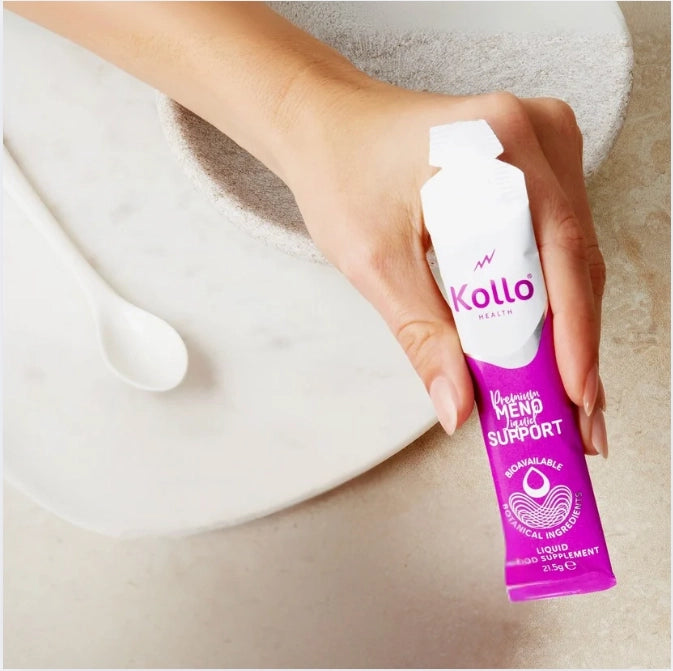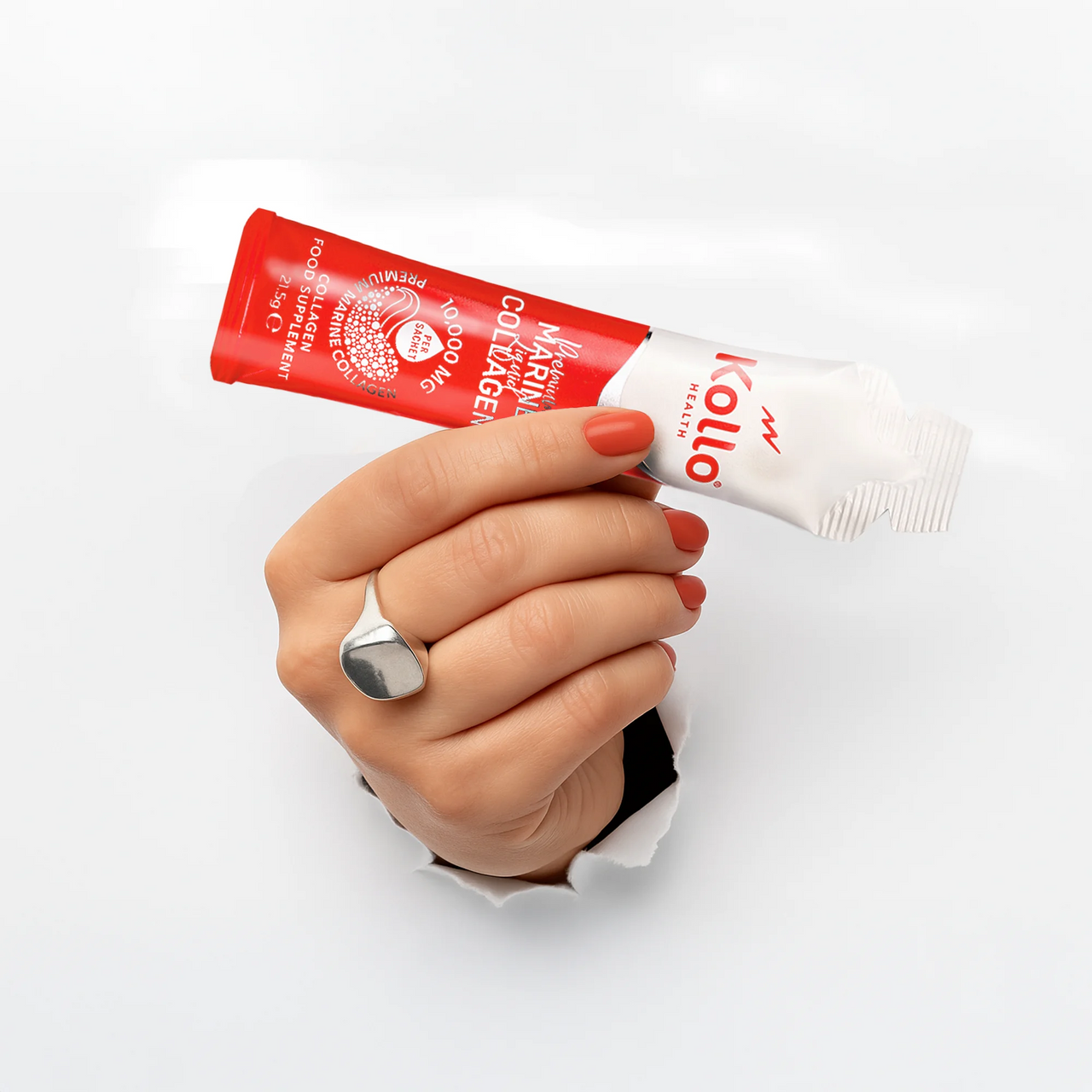Have you ever been in the middle of a meeting when a sudden wave of heat creeps up your neck, leaving you flushed and uncomfortable? Perhaps you're waking up drenched in sweat, disrupting what little sleep you manage to get. Maybe you've noticed you have a diminished sex drive, or perhaps you've noticed vaginal dryness that makes sex painful.
Menopause symptoms can be overwhelming and challenging, affecting your daily life in various ways. But with millions of women going through similar changes every year, you don't have to handle this season of life feeling helpless and hopeless.
There are many effective ways to manage these symptoms. In this blog, we’ll share ten practical methods to help you deal with the rollercoaster ride of menopause symptoms.
1. Hot Flushes Cooldown
Hot flushes and night sweats are some of the most common symptoms of menopause. They can catch you off guard and leave you feeling uncomfortable and self-conscious. To cool down, try wearing lightweight, breathable fabrics.
Keeping a fan nearby or layering your clothes can also help you adjust to sudden temperature changes. Some postmenopausal women find relief by avoiding triggers. Refrain from ingesting spicy foods, caffeine, and alcohol, which can make hot flushes and night sweats worse.
It’s essential to stay physically and mentally cool. You can also explore hormone replacement therapy (HRT) after consulting with your doctor, as it can be effective in treating night sweats.
2. Prioritise Your Sleep
Poor sleep is a big issue for many postmenopausal women. Night sweats and hormonal changes can make getting a good night’s rest hard. To improve your sleep, set up a regular bedtime routine.
Going to bed and waking up at the same time each day will help regulate your body's internal clock. Creating a relaxing pre-sleep ritual can signal your body that it's time to wind down. Keep your bedroom cool and dark to create an optimal sleep environment.
Avoid device screens for at least an hour before bed. Studies have shown that the blue light from devices can interfere with sleep and relaxation. Relaxation techniques like deep breathing or meditation can calm your mind and prepare you for sleep. These practices reduce stress and anxiety, which are everyday sleep disruptors.
Drinking a warm, caffeine-free beverage, such as herbal tea, before bed can also help relax your body and signal it's time to sleep. Chamomile or valerian root teas are known for their calming properties, making them excellent bedtime choices.
Listening to soothing music or reading a book can help you unwind further. In the evening, limit heavy meals and caffeine intake to prevent sleep issues. Prioritising sleep hygiene and adopting these habits can improve sleep quality and cut menopause symptoms.
3. Eat Healthy Food

Maintaining a balanced diet is crucial for your health, especially during menopause. Eating a variety of fruits, whole grains, vegetables, and lean proteins can help balance hormones and provide essential nutrients.
Foods rich in vitamin D, calcium, and other nutrients are necessary to keep bones healthy and strong. They can also help with weight gain or other symptoms of menopause.
Avoid processed foods, excess sugar, and high-fat diets, as these can not only cause weight gain but also increase your risk of heart disease. Incorporate healthy fats like avocados, nuts, and fish to support heart health. Eating smaller, more frequent meals can help manage blood sugar levels and prevent mood swings.
4. Exercise Regularly
Regular physical activity can significantly improve your menopause experience. Exercise helps manage a healthy weight, boosts mood, and reduces the risk of heart disease and weak bones. Aim for at least 30 minutes of moderate exercise most days of the week.
Exercise helps with menopause symptoms, promotes better sleep, and reduces anxiety and depression. Mix different exercise types to keep your routine exciting and engage different muscle groups.
Activities like walking, swimming, yoga, and tai chi are excellent choices. Strength training can also help maintain muscle mass and bone density. Joining a fitness class can motivate you and make workouts more enjoyable.
5. Stay Hydrated
Drinking plenty of water is vital during menopause. Staying hydrated can help in treating hot flushes and maintain your health. Aim to drink at least eight glasses of water a day. Dehydration can trigger hot flushes and contribute to dry skin and fatigue.
Carry a water bottle throughout the day to ensure you get enough fluids. Herbal teas, supplement mixes, and water-rich fruits and vegetables like melons or cucumbers can also help you stay hydrated.
Not a “plain” water drinker? Consider coconut water a refreshing and hydrating alternative, or include soups and broths in your diet to boost your hydration levels.
6. Reduce Depression or Anxiety
Menopause can bring about mood changes, anxiety, and low mood. Finding ways to manage stress and improve mental health is crucial. Engage in activities that bring you joy and relaxation. Some common stress reducers include exercise, meditation, and spending time with loved ones can help reduce stress.
Gentle exercises like tai chi can be very beneficial. Tai chi combines deep breathing and slow, deliberate movements, which can help improve mood and reduce anxiety. This practice promotes relaxation and mindfulness, helping you stay centred and calm. Engaging in tai chi can also improve physical health, which in turn can have a positive impact on your mental well-being.
Talking to a therapist or joining a support group can also provide valuable support. If necessary, your doctor may recommend medication to help manage severe symptoms of depression or anxiety. During menopause, finding the right balance of activities and support can improve your quality of life.
7. Diarise Your Menopause Symptoms
Keeping a journal of your menopause symptoms can be helpful. Track your hot flushes, mood changes, sleep patterns, and any other symptoms you experience. This journaling can help you identify triggers and patterns, making it easier to manage your symptoms of menopause.
Sharing this information with your healthcare provider can also help them tailor a treatment plan to your needs. Additionally, noting the times and circumstances when symptoms occur can provide deeper insights. For instance, you can adjust your lifestyle if certain foods or activities trigger night sweats or mood swings.
Journaling can also be a therapeutic outlet, helping you process your experiences and feelings. Many mental health experts suggest journaling as a first line of treatment.
8. Practise Deep Breathing

Deep breathing exercises can help manage stress and reduce the frequency of hot flushes. Regularly practising deep breathing techniques can help you stay calm and centred.
Try spending a few minutes each day focusing on your breath. Inhale deeply through your nose, hold for a few seconds, and then exhale slowly through your mouth.
This simple practice can have a profound effect on your well-being. Deep breathing activates the body's relaxation response, which can help lower high blood pressure and heart rate. When this happens, you notice a reduction in feelings of anxiety and tension.
Deep breathing can also help prevent the hormonal changes and fluctuations that trigger hot flushes. Focusing on your breath can provide a mental break from stressors, helping to improve mood and mental clarity.
Regular practice can lead to better sleep quality, as it helps relax the body and mind before bedtime. Adding deep breathing to your routine can make a difference in managing menopause symptoms.
9. Try Supplements and Hormone Replacement Therapy
Certain herbal supplements can help ease menopausal symptoms. Menopause supplements can relieve a variety of menopause symptoms. They can reduce fatigue caused by menopause as well as supporting a healthy mental function. A quality liquid menopause supplement can also help your body naturally maintain hormonal balance.
Is there a link between collagen & menopause? Many studies suggest that collagen supplements can help improve skin elasticity and joint health, which are often affected during menopause. Marine collagen 10,000mg, for example, can support skin health, joint function, and more. Taking this along with a quality menopause supplement will help overall health.
HRT is another option that can help balance hormones and reduce symptoms like hot flushes, night sweats, and mood swings. Discussing HRT with your doctor can help determine if it’s the right choice for your needs. Eating a balanced diet and adding regular exercise can enhance the effectiveness of these supplements and alternative treatments.
10. Quit Smoking and Limit Alcohol
Quitting smoking and limiting alcohol consumption are crucial steps in managing menopause symptoms.
Smoking can exacerbate hot flushes, decrease bone density, and increase the risk of heart disease. By quitting, you can improve your health and reduce these risks.
Alcohol can also trigger hot flushes and disrupt sleep patterns, so it's wise to limit intake. Opt for healthier alternatives like herbal teas or sparkling water with a splash of fruit juice. Seek support from friends, family, or support groups to help you make these lifestyle changes.
You'll likely see improvements in your menopausal symptoms and well-being. Your body will thank you.
How to Deal With Menopause

Menopause brings a variety of symptoms that can impact your daily life. However, you can manage these symptoms by making some lifestyle changes. Regular exercise, a balanced, healthy diet, and proper hydration are vital.
Prioritising sleep and practising relaxation techniques can also make a significant difference. Keeping track of your symptoms and talking to your healthcare provider can help you find the best treatment plan for your needs.
Supplements like Kollo Health’s Liquid Meno Support will aid many areas in your body and can support your journey through menopause. Visit Kollo Health to explore how this menopause supplement can help you today.
Take the first step towards a healthier, more comfortable menopause experience. Taking control of your health can make this transition smoother and improve your quality of life.







